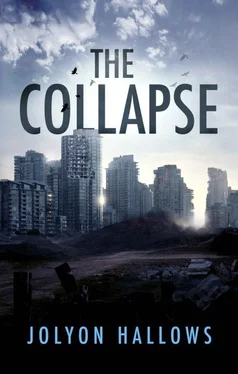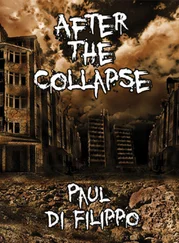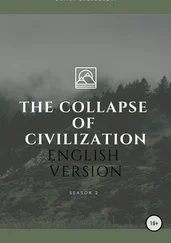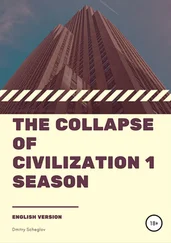“Julia, the IMF report is one of the most respected in the financial world. It crunches numbers from various national databases to produce its rankings. As you said, in the current report, Canada has dropped a full four places to number fourteen. That puts us at about the same level as Mexico or Indonesia.”
“Does the IMF see this as a trend or is it a one-off anomaly?”
“They don’t comment on that, but there is one disturbing aspect of this report: the set of footnotes. Different countries use different methodologies to gather their statistics, and some try to manipulate them to get a higher ranking. The footnotes give any concerns the IMF has about a country’s numbers.”
“Have they expressed concern about Canada’s?”
“Not just concern. The footnotes on Canada are critical of the numbers because they don’t seem to be reasonable. For example, the Canadian statistics state that provincial GDP per capita is the same for all the provinces. The IMF questions that. And that’s just one problem they have. Reading through the footnotes, I have to conclude that they don’t believe our numbers.”
“Why would the government provide invalid numbers?”
“The most likely explanation is that it doesn’t want to admit that its policies, especially with regard to resource development, are damaging the economy.”
“So the IMF doesn’t trust the data?”
“That’s putting it charitably. In non-diplomatic terms, it’s more as if they think the government is lying.”
“But if the government is lying, why wouldn’t they just issue fake numbers to keep us in tenth place?”
“That’s would be harder because other indicators, such as import/export numbers, wouldn’t match. And those come from other countries.”
“Thank you, Dianne. Dianne Cranston reporting on the latest IMF report showing Canada slipping in rankings of national wealth. Our political correspondent, Mark Janner, spoke with Elizabeth Muir, the Minister of Economic Development. Here is his interview.”
“Minister Muir, what is your reaction to the recent IMF report?”
“Mark, I’ve reviewed the report, and I can say my Cabinet colleagues and I are pleased at the results. They show that despite our recent difficulties, Canada is still a strong player in world markets. I’m confident our government’s policies have been responsible.”
“But we’ve slipped from tenth place to fourteenth. Isn’t that a concern?”
“A concern? Out of about two hundred countries, we’re still among the wealthiest in the world. Yes, we’ve slipped a few spots, but we see that as a sign that other countries are catching up. We think that’s a good thing. The wealthier the rest of the world is, the better.”
“Do you have any comments on the footnotes in the report? The ones that cast doubt on our national statistics?”
“Yes, I do. Those comments are an insult to the hard-working public servants who compile these numbers and who are committed to presenting the truth.”
“The footnotes seem to imply that there has been political manipulation of the data to make us appear wealthier than we are. What is your reaction to that?”
“Mark, I’m not going to sit here and be insulted by unsubstantiated allegations. Not only do we not interfere with the statistics, we welcome any problems they reveal. They show us where we need to focus our efforts to help all our citizens become even more prosperous.”
“Minister, the statistics show that provincial GDP per capita is the same in all regions of the country. How is that possible?”
“Mark, it has been our government’s top priority to promote equality across the entire country. It is not acceptable that a worker in, say, Toronto, is paid more than one in, say, Saskatoon. I’m delighted that our efforts to create equality are paying off.”
“Does the government intend to challenge the IMF on its rankings or its footnotes?”
“We’re in contact with them, and we’re working with them to resolve any misunderstandings. But let me say that the numbers are clear that Canada is still one of the wealthiest nations in the world. That is because of this government’s policies.”
“The opposition is claiming it’s due to past development and your government is undermining the progress the country has made. What is your response to that charge?”
“I’m offended. The opposition will stop at nothing to attack our policies, policies that have improved the lives of middle-class Canadians across the country. Our citizens approve of what we’re doing. They support us.”
“Minister, let me turn to the fuel shortages. Gasoline and diesel are now restricted to first responders and the NPF. What is the government doing to resolve this issue?”
“Mark, this problem is not of our making. We are, unfortunately, vulnerable to the manipulations of the multi-national oil companies who have chosen to punish hard-working, middle-class Canadians. They are displeased at our government because we have resisted their attempts to push through their economic agenda.”
“They’re claiming they can’t get product to the gas pumps because of the lack of transportation facilities like pipelines and rail.”
“Excuses. We’ve analyzed their claims and find them groundless. It’s their way of putting pressure on us to cave in and let them run roughshod over the interests of Canadians. I’m proud to belong to a government that is willing to stand up to them.”
“Even if people are suffering from a lack of fuel? There are reports that over ten thousand people died last winter from the cold. Isn’t there room for working with the oil companies?”
“We are not insensitive to the plight of Canadians. We have several committees studying the issue, and we are doing all we can to help our hard-working middle class. Unfortunately, these things take time. And those deaths you mentioned? You can lay them directly at the feet of the oil companies who put profits before people.”
“But Minister, what profits? If they can’t sell oil and gas, they don’t make any profits.”
“Mark, I’m not going to sit here and debate basic economics with you. Our government is committed to policies that benefit hard-working, middle-class Canadians. That won’t change.”
36
THE FUTURE OF WISHBONE
Almost two hundred people filed into the Wishbone community centre. Baxter, introduced as Ivan Kryss, noted a tension that built as each new person entered the room.
The meeting started as a series of reports. A man talked about importing large quantities of tempered glass while it was still available so he could build a greenhouse. A couple gave a presentation on their study of the town’s waste disposal system and what was needed to maintain it. Another speaker reported on her progress in setting up a horse ranch to provide transportation and delivery services. The botanist handed out samples of pseudo-coffee, which received guarded compliments.
Yet despite the normalcy of the reports, Baxter observed an unease as if people were expecting a confrontation. When they filed in, there seemed to be some care on which side of the room they sat, like opponents facing each other across a battlefield. They were united in their support for the speakers, but it was clear there was discomfort, even hostility, between the two groups.
After the final report, Sangster took a deep breath. “We have reached the point in this meeting where we have to decide what direction we want this community to go. We have two options and I know you all have strong views. I also know that just one side can prevail. It’s now time to make that decision. I’ve asked each side to name someone to present its case.” She held two clenched fists out to Baxter. “Ivan, pick a hand.”
Читать дальше












